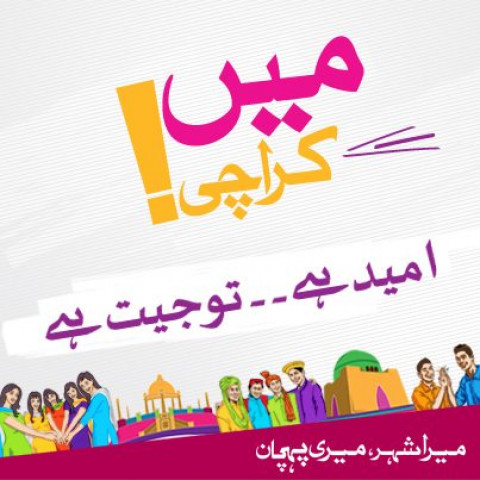City of conflicts: ‘The city has lost its identity’
Participants of 'I Am Karachi' conference believe this is no more a city of Sindhis.

City of conflicts: ‘The city has lost its identity’
"It will become a city of Pashto-speaking people in years to come because a large number of people from Khyber-Pakhtunkhwa (K-P) are migrating here to improve their standards of living," Bengali told participants of a peace conference, titled I am Karachi. The Pakistan Institute of Labour Education and Research (Piler) had organised the event at Regent Plaza Hotel. Parliamentarians, policymakers, academics, youth and civil society representatives discussed issues related to conflict and violence in Karachi.

Bengali said high growth rate of Pakhtun community and less job opportunities in K-P were the major reasons behind the population shift. "In some years, you will see the Seraikis, who are also in large number in Karachi, standing up for their rights." Policymakers do not discuss issues that have turned Karachi into a city of conflict.
"Instead of becoming a source of pride for the country, the ethnic diversity of Karachi suffered from ethno-political rifts between the Mohajirs and Sindhis due to wrong policies and the nexus between the political elites, bureaucracy and military in the 80's." The youth that made up 50 per cent of the city population became frustrated after the state failed to meet its obligations. Bengali blamed financial crisis for extremism in the city.
Dr Zahid Shahab Ahmed from the National University of Science and Technology explained how the residents of Karachi had come to live with the culture of violence, and the challenges they faced in adopting coexistence.

"Violence cannot be checked through violence. Education is the key to fighting extremism." Change of curricula and ending inequality in society could be a step in the right direction. Ahmed favoured sustainable development - a progress that lasts long. The youth are an important ingredient of the process and exploiting their talent is the need of the hour. Piler Executive Director Karamat Ali said the conference had been arranged to highlight the challenges the city faced. It would help spell out recommendations to curb violence.
Published in The Express Tribune, December 21st, 2014.



















COMMENTS
Comments are moderated and generally will be posted if they are on-topic and not abusive.
For more information, please see our Comments FAQ